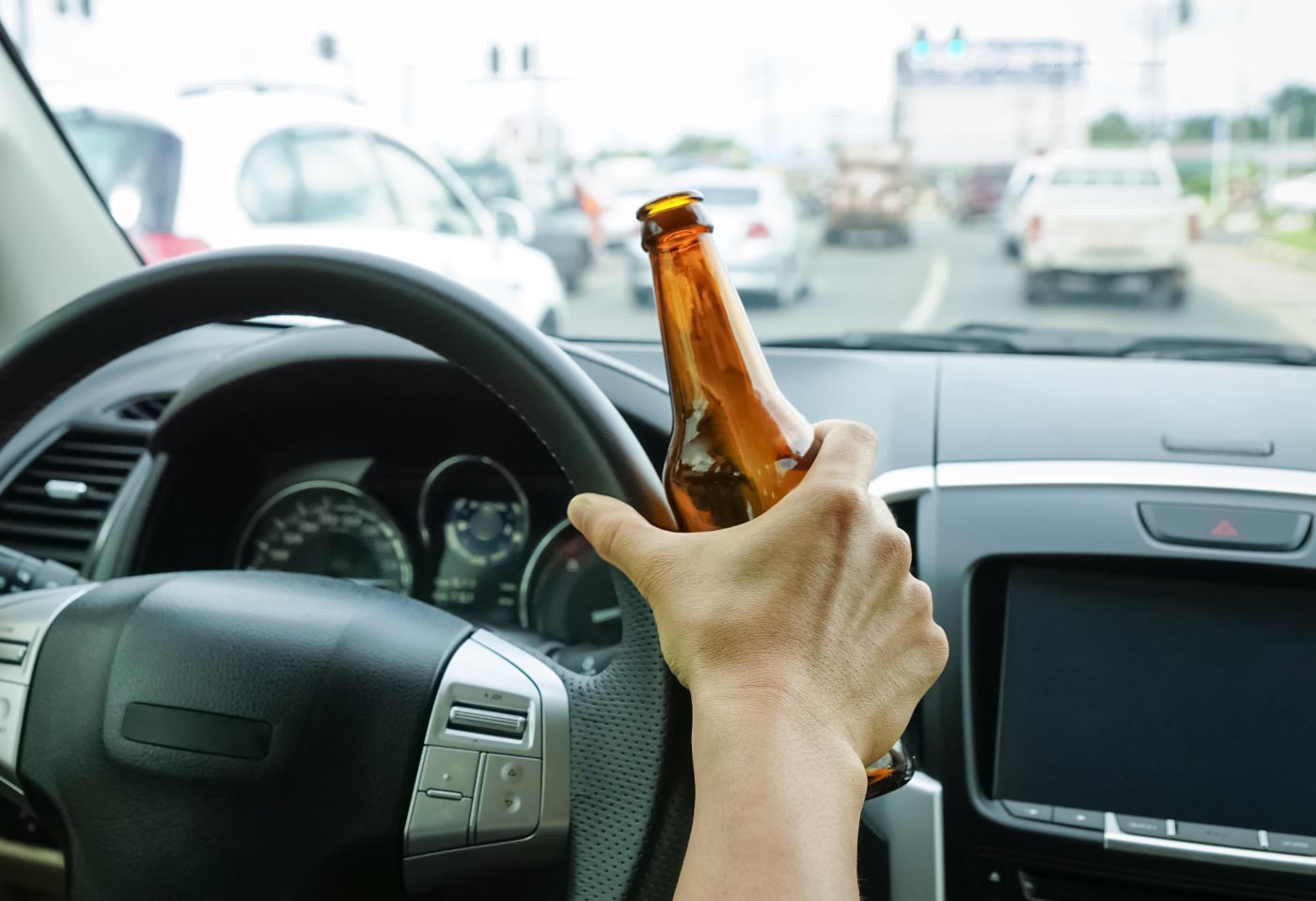There are certain essentials in life that people purchase “just in case something bad happens.” We do so to guard against a potential loss, provide us with peace of mind, and protect ourselves and our families. Auto insurance is one of those essential items. We all need it. We all buy it. The law requires it. But — do you really know and understand what it is that you are actually buying? Did you know that there are key portions of an auto policy that could financially cripple you if you are involved in a collision without sufficient coverage? This could be devastating for you, your family, your household finances, and your lifestyle.
Get a Free Consultation
Imagine that on your way home tonight, a drunk driver hits your vehicle head on and your car is totaled. You are injured and you need to have surgery. Next, imagine that the driver who hit you is unemployed, has no assets, and doesn’t have insurance to pay for any of it. This would be a devastating situation for anyone and it happens more often than you think. The worst possible time to find out that you don’t have adequate insurance coverage, or any insurance coverage at all, is when you actually need it!
As an attorney who has handled personal injury and wrongful death cases for more than 35 years, the key provisions of an auto insurance policy are something that I know well and review often when handling my clients’ personal injury claims.
Let’s talk about what you need to know.
You likely know how much the limits on your auto policy are; for example, that you have 25k/50k—the minimum in Indiana, 50k/100k, or 100k/300k in coverage. In Indiana, the current minimum requirement for auto insurance coverage in 2020 is 25k/50k/10k — meaning $25,000 per person, $50,000 per accident (in other words, it will cover up to $25,000 per person, for up to a total of $50,000, so it would technically cover two people for the full $25,000 limit per person), with $10,000 in coverage for property damage to pay for damage to the other person’s vehicle. If you are carrying the state required minimum of 25/50—often referred to as a “PLPD policy”—this is what you are providing for the other driver. With this type of a minimal policy, you are providing no coverage for yourself if you are ever in the situation above and hit by an uninsured driver. And it happens all the time.
A full coverage policy covers not only the other driver, but also covers you and your vehicle (and passengers), if you are involved in a collision. If you are hit by an uninsured driver, then your own auto insurance company would step into the shoes of the uninsured driver to provide coverage for you, your vehicle, and your passengers.
It is important to understand what type of policy you purchased. If you do have a policy that does not cover you and your passengers, then if you are involved in a wreck, you may face significant bills (one surgery alone can easily cost $20,000 or more), lost wages that won’t be reimbursed, and lost compensation for your injuries that you would otherwise have been entitled to if you had a full-coverage policy.
In addition to the policy limits, there are other key portions of your auto policy that are critical and could have a devastating impact on you and your family if you are ever involved in a serious collision with injuries. It is imperative that you take a close look at these key areas to prevent being exposed to potentially significant medical bills that could’ve been paid if you had adequate coverage, or a lack of compensation that would have been provided if you or a family member is ever seriously injured, disfigured, left with permanent injuries, or killed in a collision. A lawsuit could also potentially be filed against you and your personal property, or assets could be at stake in the event that you fail to provide adequate coverage for another driver. What you don’t know, don’t understand, or don’t educate yourself about can hurt you.
Pull out the “Declarations page” of your auto policy. Sit down at the kitchen table and take a look at the “Summary” or “Declarations” section of your policy. It will set forth the key types and amounts of insurance you have purchased.
Policy Limits – How much are your policy limits? Are they 25/50, 50/100, 100/300, or more? Is this adequate to insulate you from losing your own hard-earned assets if you cause injury to someone else or their property?
Uninsured Motorist/Underinsured Motorist Coverage. Do you have a policy that only covers the other vehicle/driver? What about protecting yourself and your passengers? If you are hit by an uninsured driver, you will get nothing. Technically, you could go after them personally. But the reality is that people who can’t afford car insurance don’t have extra assets sitting around. They file bankruptcy and your claim goes away. Therefore, it is imperative that you have adequate coverage to protect yourself and your loved ones. Having no coverage, coverage that only extends to the other driver, or minimal coverage is like playing Russian roulette anytime you drive your vehicle down the road.
Property damage coverage – This is the portion of your policy that controls what property damage—damage to vehicles or other personal property—will be covered if you are in a collision. If you have the state-required minimum policy that covers only the property damage of the other driver, then if you are involved in a collision and are at fault for causing it, you will be left with a damaged vehicle, a totaled vehicle, or no vehicle at all. Not only is this inconvenient, but the loss of a vehicle could impact your ability to get to work, earn a living, and would undoubtedly place you (and your household) in a state of financial hardship.
Medical payments coverage – Also known as “Medpay.” This portion of your policy is important. You should think of it as money intended to cover the medical bills you or anyone in your car incur for medical treatment resulting from a collision. The coverage pays medical bills, immediately, regardless of who is at fault. This often prevents lawsuits. Medpay comes directly from your insurer and is intended to provide quick payment of medical bills for you and your passengers without having to worry about liability issues and the delays that come with them.
While you may have to pay back your insurer later if you receive an injury settlement from the other driver’s insurer, that is something your lawyer can help you sort out. The purpose of Medpay is to help you get your bills paid promptly, so you can avoid being chased by medical bill collectors.
Who Is at Fault for The Motor Vehicle Accident?
Even if you are involved in a collision where it is very clear to you that the other driver was the one at fault, the other driver’s insurance company may feel otherwise. In fact, it is common for insurance companies to fight claims and dispute liability (who is at fault for a collision) because the less money they pay out to people for their claims, the more they make in profit. In other words, it is in the insurance company’s best interest to pay you as little as possible for your injuries. Let me say that again, it is in the insurance company’s best interest to pay you as little as possible for your injuries. That is precisely the reason why it is so crucial that you to consult with an experienced personal injury attorney who knows the law, can help to interpret the facts, and guide you on the best legal path toward settlement or trial.
What if I’m Hit by An Uninsured Driver?
If you are hit by an uninsured driver then your own insurance company will step into the shoes of the uninsured driver. In other words, even though it is your own insurance company and your own policy, they step into the role of being your adversary. If you are hit by an uninsured driver then the only insurance coverage available to you will be your own. As stated above, if you do not have any coverage on your vehicle/self, or you have insufficient coverage, you may get very little for your injuries, or nothing at all.
What If I’m Injured?
If you are injured in a car accident, you should speak with an experienced personal injury attorney immediately to make sure you get what you are entitled to under the law. The insurance company is not your friend, though the adjuster will likely seem very friendly when they call and ask you to give a recorded statement. Do not give a recorded statement, or even speak with the insurance adjuster about the facts of the collision, unless your attorney is present.
You need someone on YOUR side who will fight for you. You need someone to protect YOUR interests and step into the legal ring to be your advocate. That’s exactly what WE do. We have a litigation team of experienced attorneys and professional paralegals who will work—not just hard, but strategically—on your behalf to make the process as efficient as possible. We’ll step in to do the heavy (legal) lifting, so you can get back to your life. We’ll focus on your case, so you can focus on moving forward.
Contingency Fee
Most personal injury attorneys are willing to work on a contingency fee basis. That means that they don’t get paid unless you do. At the time of settlement or a verdict, they will receive a previously agreed upon percentage of the settlement funds as spelled out by the Fee Agreement. If the attorney doesn’t recover money for you, then they don’t get paid. This type of a fee arrangement helps to level the playing field and allows you—as the injured party—to hire the best possible lawyer without needing to pay anything up front.
Does Your Lawyer Have Trial Experience?
When hiring a personal injury attorney, experience matters. An attorney’s past years of experience and time spent in trial should be a major factor when determining who you want to hire to represent you. If you speak with a lawyer who doesn’t have extensive trial experience, s, chances are, they aren’t really a “trial” lawyer. As the saying goes, you wouldn’t want to bring a knife to a gun fight, and you shouldn’t hire an attorney without trial experience because it puts you at a major disadvantage if your case does go to trial. (About 5% of all cases do.) Insurance companies know which lawyers will take a case to trial if needed – and they also know which lawyers always settle. Who do you think gets better settlements?
We Have Experienced Personal Injury Attorney Who Have Extensive Trial Experience!
We have two attorneys on our litigation team who have more than 70 years of collective experience between them. They know how to best navigate the legal system. They know the law. They understand the nuances of personal injury cases. They have extensive trial experience. And most importantly—they are NICE lawyers who will aggressively work to obtain a great result for you.
We will listen to the facts of your situation, do our best to explain the process and lay out your options, and provide you with the reliable legal guidance needed to help you get what you deserve. Now, how can we help you today?



